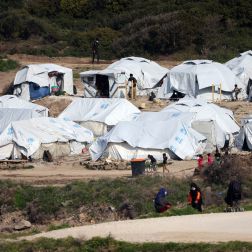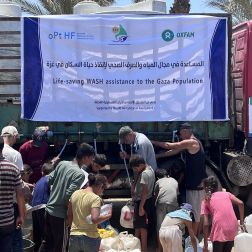- 3 mins read time
- Published: 16th January 2020
Yemen: Still the world's worst humanitarian crisis
We’re only a little more than two weeks into 2020 but the bad news has come thick and fast. Devastating flooding in Jakarta. Catastrophic bushfires in Australia. Rising tensions between the US and Iran.
Every story is important. Every story deserves our attention.
But sometimes, the pace of breaking news is so fast that other, equally important stories be forgotten. Stories like the ongoing war in Yemen.

As the war enters its fifth year, the situation for the Yemeni people remains dire. More than 12,000 civilians have been killed and some 4 million people have had to flee their homes due to the bombing and fighting. Around 24 million people – 80 percent of the population – need emergency aid, while 10 million people are only one step away from famine.
The country’s economy has been shattered. Countless homes, warehouses, farms and vital parts of civilian infrastructure have been destroyed. Basic services, like health or water supply, have collapsed. The flow of food – nearly 90 percent of which had to be imported even before the conflict started – has been massively disrupted by the warring parties.
Prices are continuing to rise, while many of the poorest people have lost their incomes. Parents cannot afford to buy enough food, leaving 2 million children suffering from severe acute malnutrition. Around 350,000 of them are under the age of five.

What has been described by the United Nations as the world’s ‘worst’ humanitarian crisis has also resulted in one of the worst outbreaks of cholera in recent history. Between April 2017 and December 2018, there were over 1.3 million suspected cases and 2,760 associated deaths.There was an increase in suspected cases last year, according to the World Health Organisation, with over 696,500 suspected cases and 913 associated deaths recorded between January and the end of September.
What Oxfam is Doing
Since July 2015, we have helped more than 3 million people in nine governorates of Yemen with clean water and sanitation, cash assistance and food vouchers. We’ve also provided clean water and sanitation to more than one million people, including in hard-to-reach areas of the country, by trucking in water, repairing water systems, delivering filters and jerrycans, as well as building latrines. This included trucking in water to more than 5,000 displaced people living in camps in Khamer and Al Qafla in Amran governorate last year.




